When debugging C programs on a Windows machine, the first obstacle is often the lack of a proper compiler. Windows doesn’t come with one by default. That means you write code, hit run, and nothing. No errors. No output. Just silence. Without a C Compiler for Windows, your logic, no matter how flawless, simply can't be executed. It’s like owning a car without a key—you’re not going anywhere. Whether you’re tracking down segmentation faults or fixing infinite loops, the journey starts with the right tools.
And that tool is the compiler. It bridges your human-friendly code with the machine's raw logic. It checks for syntax, compiles line-by-line, and spits out an executable you can test, break, and fix. Without it, debugging is impossible. That’s why this guide walks you through how to choose, install, and use a C Compiler for Windows effectively. You’ll also learn how to avoid common setup issues and explore advanced features that help optimize your code. Want to take things further? Pursue our Software Engineering courses to get hands-on experience!
What Is a C Compiler?
A C compiler reads your .c files and turns them into machine code. This code is what your computer actually runs. Without a compiler, even the most perfect program won't execute. Your logic, functions, and loops mean nothing unless converted into something your processor can understand.
The compiler performs several steps—preprocessing, compiling, assembling, and linking. Each step takes your code closer to the final executable. For example, when you write:
int main() {
printf("Hello, World!");
return 0;
}The compiler checks for syntax errors, includes required headers, translates your logic into low-level instructions, and links it with standard libraries. The output?
A .exe file on Windows you can run directly.
Must Explore: Introduction to C Tutorial
Different compilers may generate slightly different binaries. But they all follow the same goal: convert your source code into something the operating system can run. Without a C compiler for Windows, none of this is possible. In case you are a fan of the Linux Operating system and need help compiling C programs Do checkout: How to compile a C program in Linux. It’s the core tool in every development workflow—essential not just for building, but also for testing and debugging your C programs.
Why Do You Need a C Compiler for Windows?
You need a C Compiler for Windows to build and test applications natively. Windows doesn’t ship with one by default. Using the right compiler ensures:
- Accurate code translation
- Faster execution
- Compatibility with Windows APIs
- Support for standard libraries
For example, compiling with Visual Studio lets you directly integrate with Windows GUI tools. On the other hand, MinGW offers a lightweight GCC-based environment that works well for console apps.
Types of C Compilers for Windows
Several types of C compilers are available for Windows. Let’s take a look at some of them.
1. GCC (GNU Compiler Collection)
The GNU Compiler Collection (GCC) is a popular, open-source compiler suite that supports multiple programming languages, including C, C++, Objective-C, Fortran, Ada, and others. Originally developed as part of the GNU Project, GCC is widely used across different platforms, including Windows. It is known for its efficiency, versatility, and adherence to language standards. You can use GCC on Windows through platforms like Cygwin or MinGW (Minimalist GNU for Windows).
2. Microsoft Visual Studio
Microsoft Visual Studio is an integrated development environment (IDE) that supports various programming languages, including C, C++, C#, and many others. It is a powerful, feature-rich IDE designed for Windows application development. Visual Studio includes Microsoft's Visual C++ compiler, which supports C and C++. It is well-suited for developing Windows applications, as it provides seamless integration with the Windows API and offers a comprehensive set of debugging and diagnostic tools.
3. Clang
Clang is an open-source C compiler that is part of the LLVM (Low-Level Virtual Machine) project. It is designed to be compatible with GCC and provides better diagnostics, faster compilation times, and low memory usage. Clang supports multiple programming languages, including C, C++, Objective-C, and Objective-C++. It is available for Windows and can be used as a standalone compiler or integrated with various development environments.
4. MinGW (Minimalist GNU for Windows)
MinGW is a minimalist development environment for native Windows applications. It provides a lightweight and user-friendly way to use Windows's GNU Compiler Collection (GCC). MinGW includes a port of the GCC compiler, along with other essential development tools and libraries, enabling you to create Windows applications using standard C, C++, and other languages supported by GCC. MinGW is an attractive option for those who prefer a simpler, more streamlined development environment.
5. Digital Mars C/C++ Compiler
The Digital Mars C/C++ Compiler is a set of compilers for the C and C++ programming languages developed by Digital Mars. It is a closed-source compiler, but it is available as a free download for personal and non-commercial use. The Digital Mars compiler offers compatibility with most C and C++ language features and has a reputation for generating fast and efficient code. It comes with an IDE called DMC++ but can also be used with other IDEs or as a standalone compiler.
Must Read: 29 C Programming Projects in 2025 for All Levels [Source Code Included]
Source Code Editors
A source code editor is an essential tool for C programming. It helps you write, edit, and organise your C programming code. Popular source code editors include:
1. Visual Studio Code
Visual Studio Code (VSCode) is a popular, open-source, and lightweight source code editor developed by Microsoft. It supports various programming languages, including C, C++, etc. VSCode offers many features, such as syntax highlighting, code navigation, built-in Git integration, and debugging capabilities. It also has an extensive library of extensions that can further enhance its functionality and enable support for additional programming languages and tools.
2. Sublime Text
Sublime Text is a powerful, fast cross-platform source code editor supporting multiple programming languages, including C. It offers a clean and minimalist interface, along with features like syntax highlighting, multiple selections, and a "Goto Anything" function for quick file navigation. Sublime Text has a strong community and a rich ecosystem of plugins that can be easily installed via its built-in package manager, adding functionality and support for other languages and tools.
Also Read: Static Function in C: Definition, Examples & Real-World Applications
3. Notepad++
Notepad++ is a free, open-source source code editor for Windows. It is designed as a more feature-rich alternative to the default Notepad application that comes with Windows. Notepad++ supports various programming languages, including C, and offers features like syntax highlighting, code folding, auto-completion, and a customisable interface. It is lightweight, fast, and has a large community of users contributing to its development and maintaining an extensive library of plugins.
4. Atom
Atom is a modern, open-source, and customisable source code editor developed by GitHub. It is built with web technologies, making it easily extensible through plugins and themes. Atom supports multiple programming languages, including C, and provides syntax highlighting, code completion, and built-in Git integration features. It also has a package manager for installing additional features and language support. Atom's strong community and extensibility make it a popular choice for developers.
5. Vim
Vim (Vi IMproved) is a highly configurable and powerful text editor known for its keyboard-driven interface and efficient text manipulation capabilities, making it popular among experienced programmers. Vim has a steep learning curve but is appreciated for its efficiency and flexibility, especially for those who prefer working in a terminal environment.
Pursue DBA in Digital Leadership from Golden Gate University, San Francisco!
Installing a C Compiler for Windows
Before installing a C compiler for Windows, you must ensure that your system meets the required prerequisites. The most important such system requirements include:
- Windows operating system (7 or later)
- Minimum 1 GB RAM
- Minimum 2 GB of free hard disk space
Once you have ensured that your system meets the minimum requirements, you can begin downloading any one of the C compilers listed above.
For this tutorial, let’s take the MinGW compiler.
Steps for downloading the C compiler for Windows
- Google the C compiler for Windows that you wish to download – in this case, MinGW.
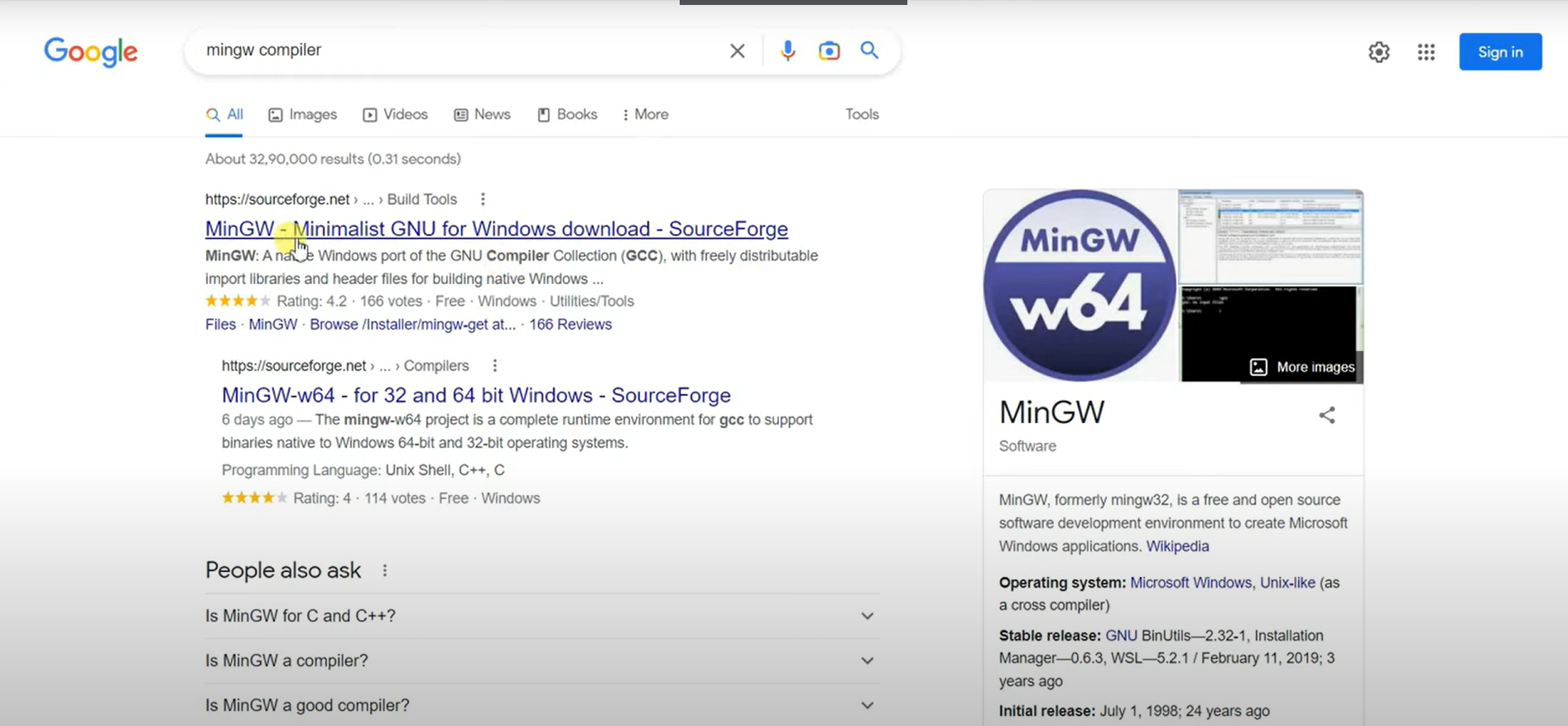
- Click on the first result, and arrive at their downloads page.
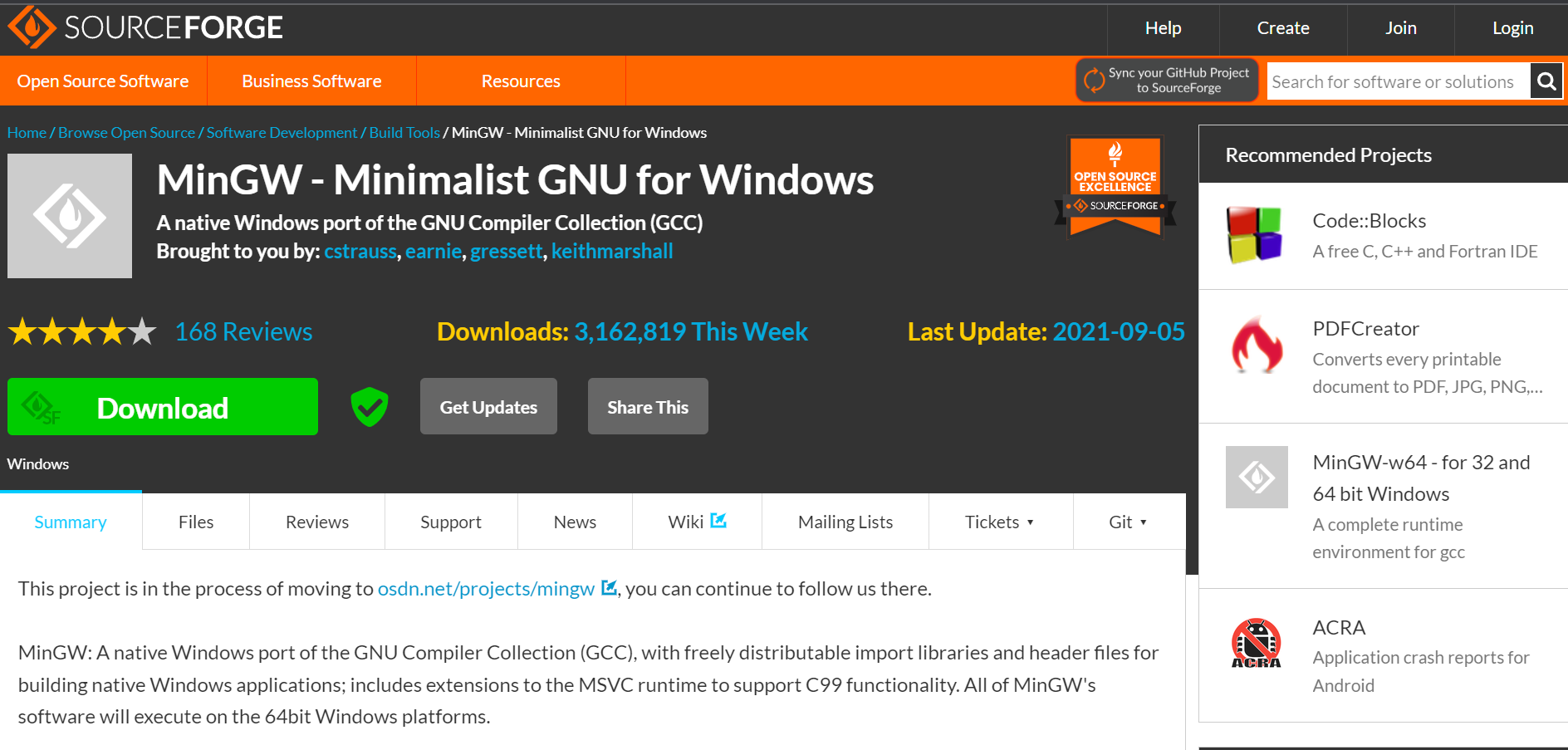
- Click on the download button. Your C installer for Windows download should begin after this.
Installation Steps:
- Locate the downloaded installer file on your computer.
- Double-click the installer to start the installation process.
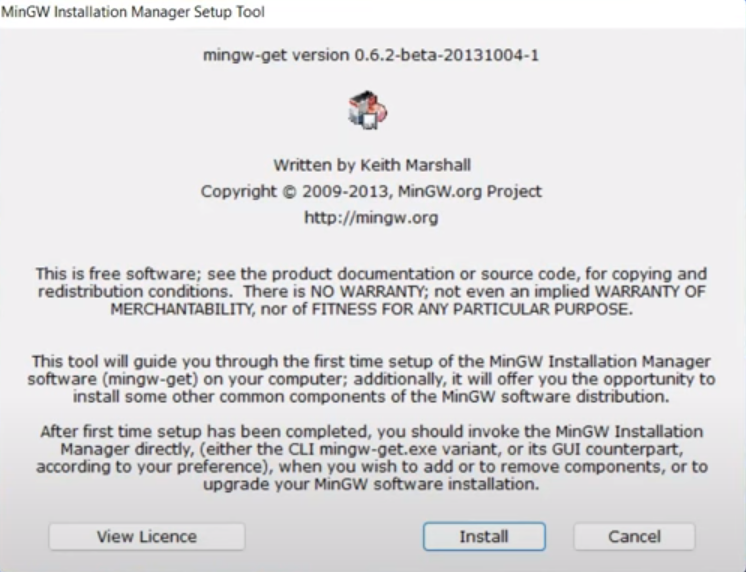
- Follow the on-screen instructions, including accepting the license agreement and choosing the installation directory.
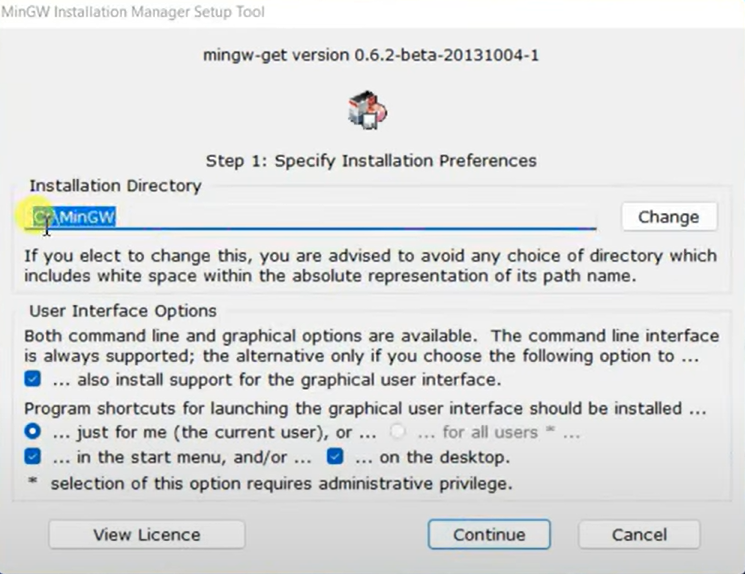
- Wait for the installation to complete, and then close the installer.
- The whole process should take 5-7 minutes, and you should see the following dialogue box while the process is going on:
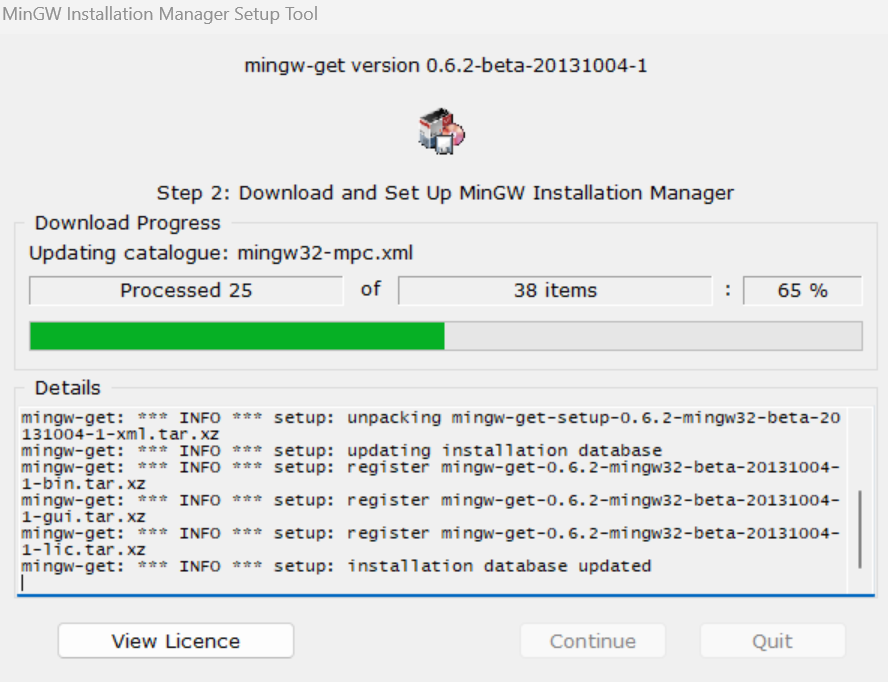
- Once the installation process is over, it will show you the following window:
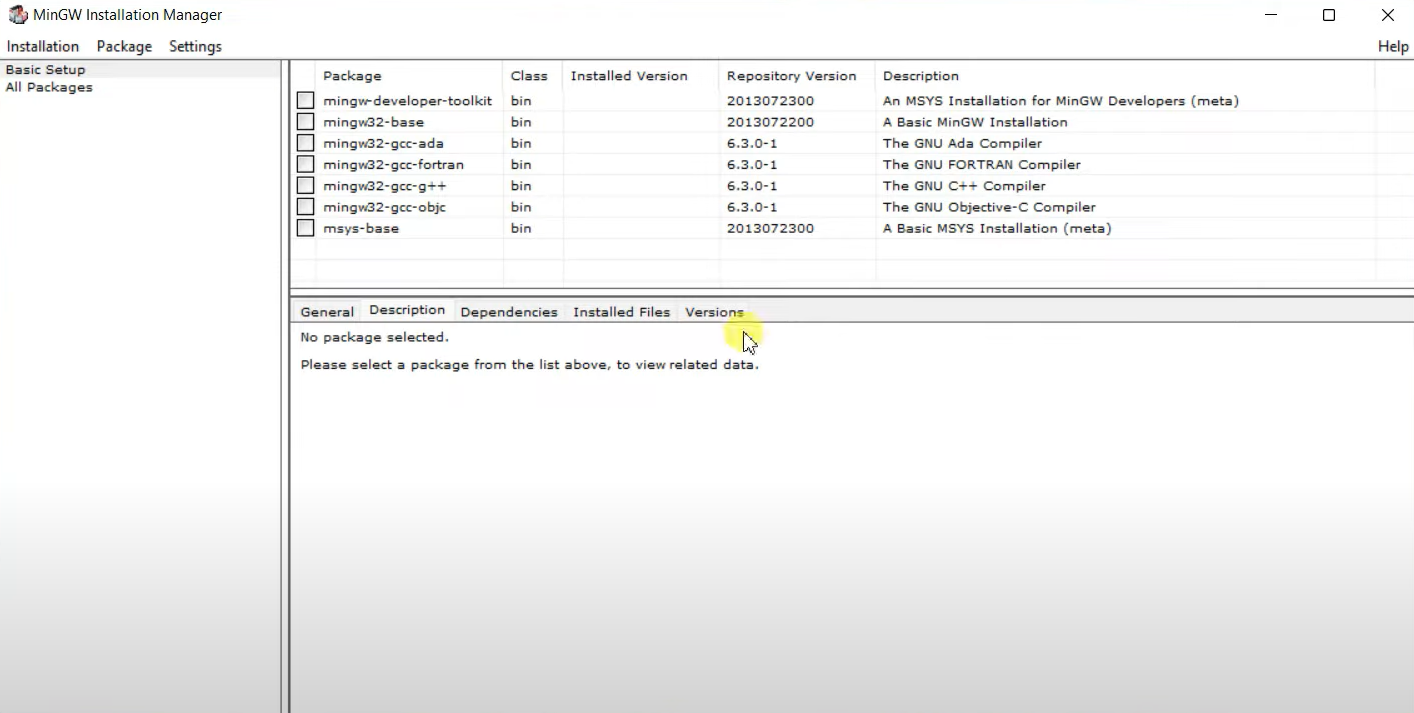
- From here, select each of the packages and click on ‘Mark for installation’.

- Once this is done, go to the Installation menu, and click on Apply Changes. A dialogue box will then appear – click on Apply and will download all the packages. This process will take 3-5 minutes.
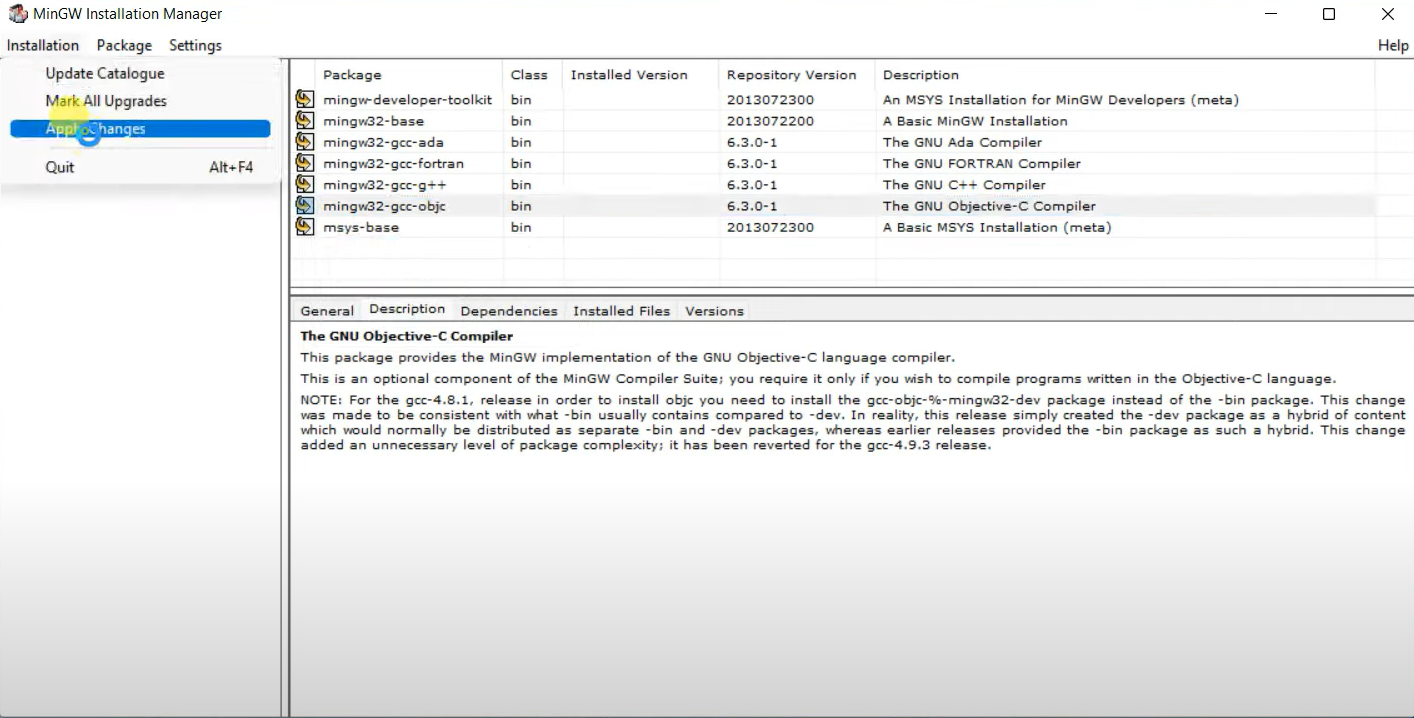
Using a C Compiler for Windows
Once you have downloaded and installed your C compiler for Windows, the next stop is starting to use the C compiler for creating C codes. Here are some steps that you can take in order to do that.
Setting up Path Variable (add screenshot)
- Open the "System Properties" window by right-clicking on "Computer" or "This PC" and select "Properties."
- Click on "Advanced system settings" on the top.
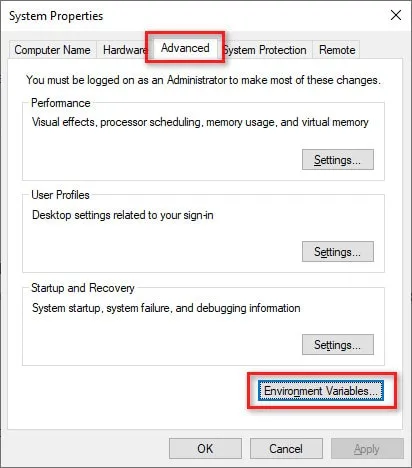
- In the "System Properties" window, click on the "Environment Variables" button.
- Under "System variables," look for the "Path" variable, then click on "Edit."
- Add your C compiler's installation path to the Windows PATH environment variable, separating it from existing entries with a semicolon.
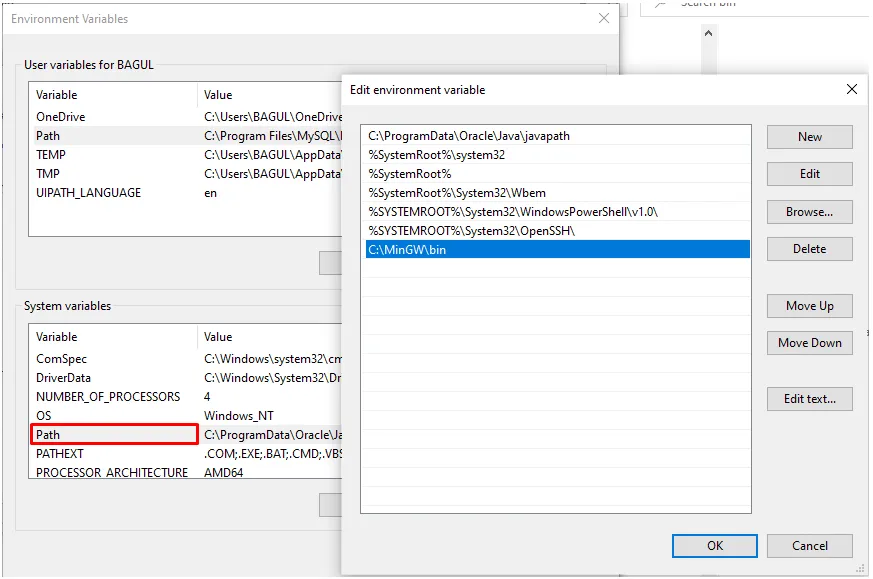
- Click "OK" to save the changes and close the window.
Creating a New C File
- Open your preferred source code editor – in this case, Sublime Text.
- Create a fresh file by clicking "File" and then "New" or using the respective keyboard shortcut.

- Save the new file with a ".c" extension by clicking "File" and then "Save As" and selecting "C Source File" as the file type.

Writing C Code
- Write your C programming code in the editor, including necessary headers, functions, and statements.

- Save your code by clicking "File" and then "Save" or using the respective keyboard shortcut.

Compiling and Running the Code
- Open the command prompt or terminal window on your computer.
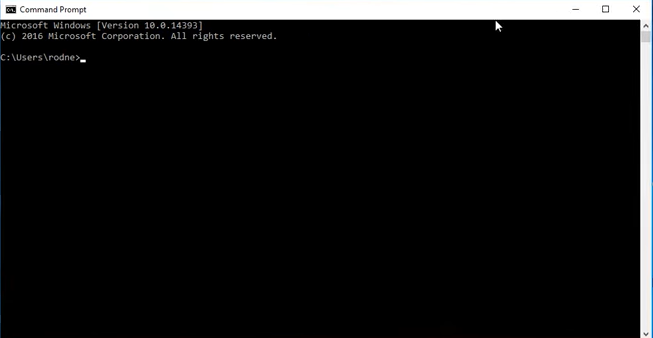
- Navigate to the directory containing your C file using the "cd" command. In this case, the .c file is saved on the Desktop.
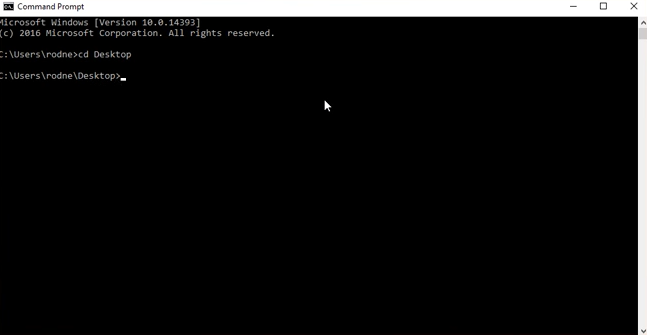
- Use the C compiler command (such as "gcc" for GCC or "cl" for Microsoft Visual Studio) followed by your source file name to compile your code.

- If there are no errors, an executable file will be created in the same directory.
- Type the name of your compiled executable file and run it in the terminal or command prompt by pressing Enter. In this case, the name of the executable file is ‘a.exe’. Your program output will be displayed.
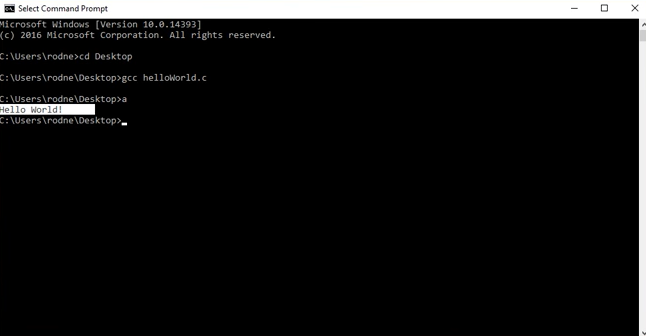
Debugging the Code
- If you encounter errors during the compilation process, examine the error messages displayed in the command prompt or terminal window.
- Return to your source code editor and locate the lines mentioned in the error messages.
- Fix the errors in your code, save the changes, and recompile the code.
- Utilise your editor's built-in debugging tools, if available, to identify and fix errors in your code.
Check out the Executive Diploma in Data Science & AI with IIIT-B!
Alternate Method
Installation using CodeBlocks IDE Binary release
1. Visit the official CodeBlocks website and navigate to the download section.
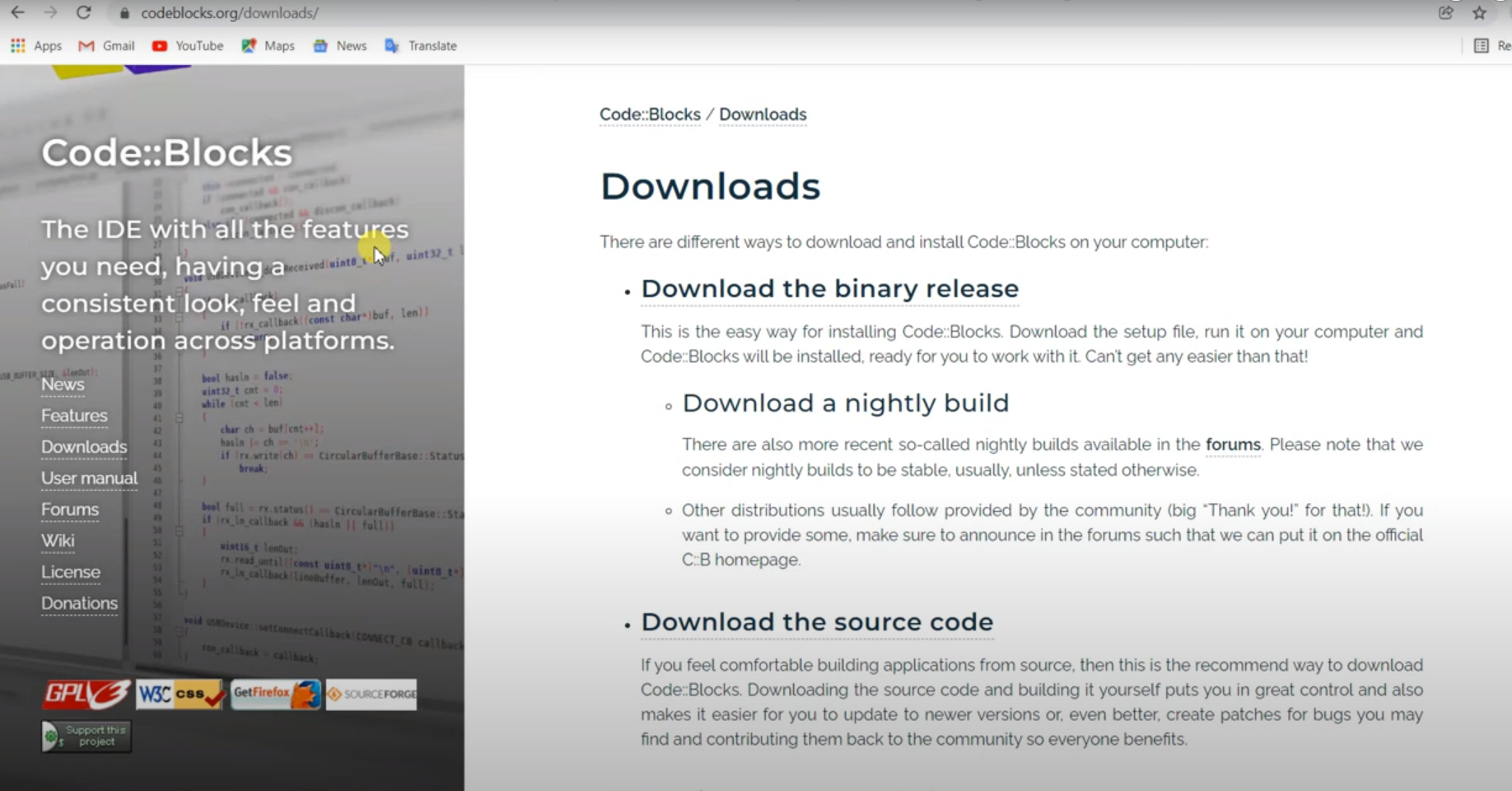
2. Download the CodeBlocks IDE binary release with the desired C compiler (e.g., GCC) included.
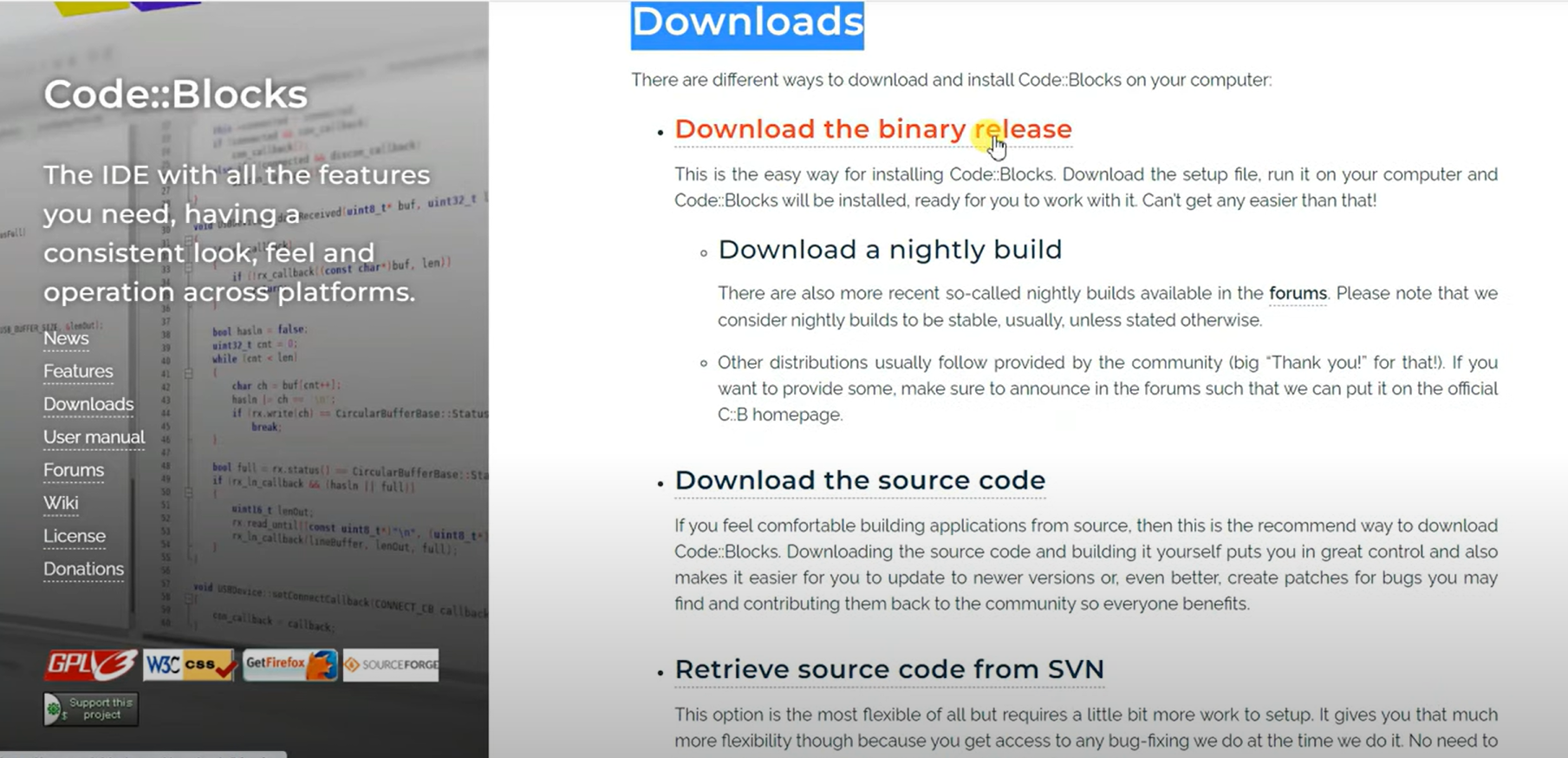
Locate the downloaded installer file on your computer and double-click it to start the installation process.
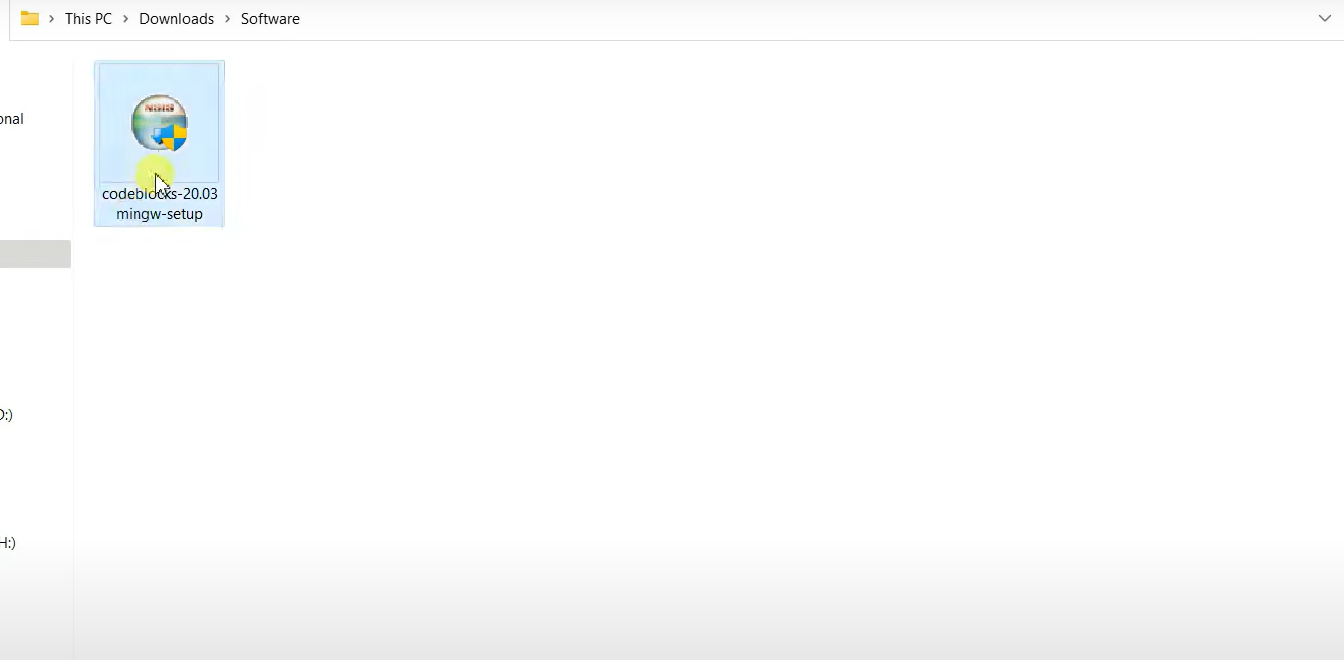
3. Follow the on-screen instructions, including accepting the license agreement and choosing the installation directory.
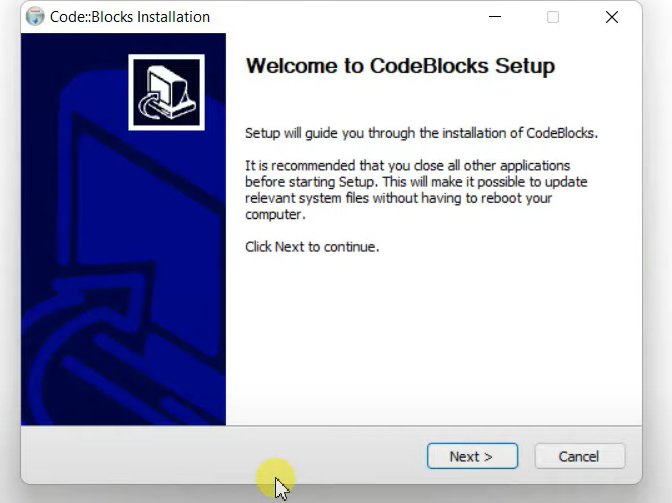
4. Wait for the installation to complete, and then close the installer.
Must Explore: Master User Defined Function in C: Practical Examples & Best Practices
What Advanced Features Does a C Compiler for Windows Offer?
A good C Compiler for Windows does more than just translate code. It sharpens, boosts, and polishes it—kind of like a personal trainer for your source code.
Code Optimisation
Why let your code crawl when it can fly? Advanced compilers optimize loops, remove dead code, and improve execution paths. The result? Lean, mean, high-performance executables. You write basic C; the compiler makes it brilliant.
Multi-threading Support
Need to handle more than one task at once? Multi-threading support enables your app to run different threads in parallel. You can load a file, update the UI, and crunch numbers—all at the same time. Your compiler takes care of thread-safe instructions and system calls under the hood.
Advanced Debugging Tools
Ever tried fixing a bug that just... vanishes when you look for it? Modern C compilers include debugging tools that let you:
- Set breakpoints
- Watch variables in real time
- Navigate the call stack like a pro
Some even integrate with graphical debuggers or terminal-based tools like GDB or LLDB. It’s like having X-ray vision for your program.
Also Read: String Input Output Functions in C
How to Troubleshoot Common C Compiler Issues on Windows?
Even with the best setup, things can go sideways. Let’s decode the most annoying ones—before they ruin your day.
Missing or Incorrect PATH Variable
If gcc or cl throws a “command not found” error, your system PATH is probably off. Open Environment Variables, and make sure your compiler’s bin folder is listed. Without it, Windows won’t know your compiler even exists. It’s like installing a microwave and forgetting to plug it in.
Compiler Version Conflicts
Have more than one compiler? That’s great—until they start fighting. If your system’s picking the wrong one, specify the full path when compiling, like this:
C:\MinGW\bin\gcc.exe mycode.c -o mycode.exe You can also set a default using environment variables or aliases.
Incompatible Source Code Editor Settings
If your code editor refuses to play nice, double-check the build settings. Make sure it’s calling the right compiler with the correct flags and output directory. Editors like VS Code, Sublime, or Atom can work perfectly—if configured correctly.
Must Explore: String Functions in C
Final Thoughts: Why Your Journey With a C Compiler for Windows Is Just Beginning
So, here we are. You’ve explored installation, learned how to build, debug, and even optimize. You now understand what a C Compiler for Windows really brings to the table. And the good news? This is only the start.
Don’t stop here. Write more code. Break things. Fix them. Learn from every compiler warning and every runtime crash.
And if you're thinking about going deeper—why not back it with solid credentials?
Take the next leap: upGrad’s Master of Science in Computer Science, in collaboration with Liverpool John Moores University, can supercharge your learning. With real-world projects, expert sessions, and hands-on mentorship, you’ll go from compiler rookie to coding pro in no time.
Let your journey with the C Compiler for Windows evolve into something bigger. One line of code at a time.
FAQs
1. What is a C Compiler for Windows, and why is it necessary?
A C Compiler for Windows is the tool that converts your C code into machine-readable instructions. Without it, you can’t run, debug, or test C programs on a Windows system.
2. Which is the best C Compiler for Windows for beginners?
MinGW is a solid choice for beginners. It’s lightweight, easy to install, and works well with most editors. If you prefer an IDE, Code::Blocks with GCC pre-installed is a friendly starting point.
3. How do I install a C Compiler for Windows using MinGW?
Download the MinGW installer, run it, mark all packages for installation, and apply changes. Then, update your PATH variable so you can compile from the terminal.
4. Can I use a C Compiler for Windows on Windows 11?
Yes, all major compilers like GCC (via MinGW), Clang, and MSVC work on Windows 11. Just make sure to download the latest compatible versions.
5. What’s the difference between MinGW and MSVC?
MinGW uses GCC under the hood and is ideal for cross-platform C development. MSVC is Microsoft's compiler, integrated into Visual Studio, and is more tailored to Windows-native apps.
6. How do I set the PATH variable after installing a C compiler?
Go to System Properties → Environment Variables → Edit PATH. Add the compiler’s /bin folder. This allows the system to locate your compiler when you run commands.
7. What features should I look for in a C Compiler for Windows?
Look for code optimisation, multi-threading support, debugger integration, and Windows API compatibility. These features boost both performance and productivity.
8. Why is my C code not compiling on Windows?
Check for missing semicolons, undefined variables, or incorrect build settings. Also, ensure your PATH variable includes the correct compiler path.
9. Is Visual Studio Code a good editor for compiling C on Windows?
Yes. With the right extensions (like C/C++ by Microsoft) and tasks.json settings, VS Code pairs well with compilers like GCC or Clang.
10. Can I compile and debug C code in the terminal?
Absolutely. Use gcc to compile and gdb to debug in the terminal. It’s fast, flexible, and great for learning the compilation process.
11. How do I fix the ‘gcc is not recognized’ error?
This means your PATH variable doesn’t point to MinGW’s /bin folder. Add it manually, save, and restart the terminal.
12. Is Clang a good alternative to GCC for Windows?
Yes. Clang offers faster builds, better error messages, and great memory performance. It’s fully compatible with most Windows C projects.
13. What’s the easiest way to write and run C code on Windows?
Use Code::Blocks or Dev C++. These IDEs bundle the compiler, editor, and debugger—no setup headache, just write and run.
14. Can I write GUI apps using a C Compiler for Windows?
Yes. Use compilers like MSVC that support Windows APIs. Combine C with frameworks like Win32 API or GTK to build GUI programs.
15. Do I need a different C Compiler for C++ on Windows?
Not really. Most C compilers, like GCC or MSVC, also support C++. Just use the right file extension (.cpp) and you're good to go.
Take a Free C Programming Quiz
Answer quick questions and assess your C programming knowledge



-35c169da468a4cc481c6a8505a74826d.webp&w=128&q=75)
-7f4b4f34e09d42bfa73b58f4a230cffa.webp&w=128&q=75)
-7f4b4f34e09d42bfa73b58f4a230cffa.webp&w=128&q=75)
-7f4b4f34e09d42bfa73b58f4a230cffa.webp&w=128&q=75)
-7f4b4f34e09d42bfa73b58f4a230cffa.webp&w=128&q=75)
-7f4b4f34e09d42bfa73b58f4a230cffa.webp&w=128&q=75)












-d9bdeff6165f4eb1ba2adcebde78e961.svg)



%20(1)-d5498f0f972b4c99be680c2ee3b792d7.svg)











-ae8d039bbd2a41318308f8d26b52ac8f.svg)






















-9cd0a42cab014b9e8d6d4c4ba3f27ab1.webp&w=3840&q=75)






